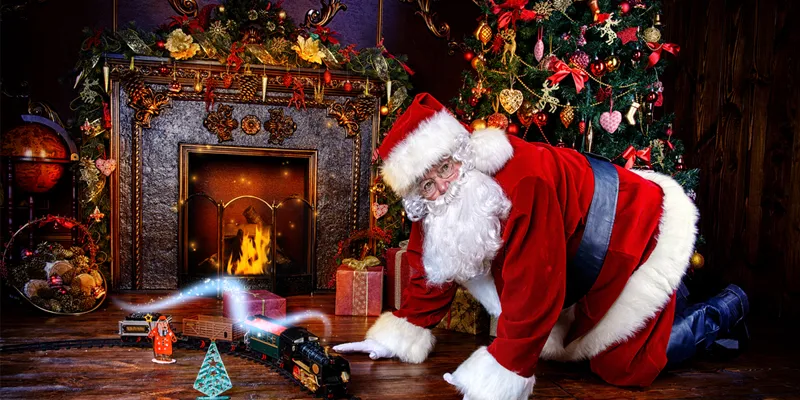From Queen Victoria to Coca-Cola: 5 stories you didn’t know about Christmas
Christmas traditions have not only changed from culture to culture but have also morphed with time. While Polish people consider spider webs as common decorations, the Spaniards have a tradition of hosting the world’s largest lottery. While the Portuguese hold feasts for the living and the dead, the Greeks don’t exchange gifts until the January 1. While modern Christmas celebrations still resemble the older and more ancient traditions, there’s a lot about Christmas that has changed, and hence, there’s a lot that we don’t know about its origins.

Image : shutterstock
Christmas, like other elusive traditions, has roots that are difficult to trace. Every aspect of this festival – the tree, the carols, the food – has interesting origins. Here are five such stories that you probably didn’t know about Christmas.
Christmas tree MIA
The most iconic element of Christmas, the Christmas tree, wasn’t a part of its traditions until the 1840s. Germans were originally known to decorate the evergreen fir to lighten up their gloomy winters. It was only when Prince Albert of Cobourg, Germany, married Queen Victoria in 1840, that the tree was introduced to England. The newly-wed couple were sketched in front of such a tree and very much like the effects of modern celebrity branding, the Christmas tree soon became popular and absorbed into its traditions.
Jesus’ birthday? Probably not
If there’s one thing every soul on the planet knows about Christmas, it’s the ‘fact’ that it marks the birth of Jesus. There is, however, no mention of this date in the Bible; in fact, historians believe that Jesus was actually born during the season of spring. There’s a lot of speculation, therefore, about why December 25 is celebrated as the birth date of Jesus. Some believe that as Christianity spread across the globe, some pagan traditions were retained by it.
The pagan’s considered this day as the ‘birthday’ of Sol Invictus, and this tradition may have been retained by the Christians in Rome during the conversions. Others believe that in the fourth century, Pope Julius I chose this date for the Feast of Nativity, and that it was simply a coincidence that it fell on the same day as the pagan festival.
Jingle bells was not a Christmas song
In the 1850s, a musician by name James Lord Pierpont (uncle of JP Morgan) was residing in Massachusetts when he wrote the song One Horse Open Sleigh, possibly inspired by Medford’s sleigh races, according to one theory. Some believe that it was originally meant to be a thanksgiving song which he played in the Sunday school choir, but historians have refuted his theory. Whatever the intention of the song was, it is established that it was never meant to be a Christmas song and was only later tweaked and infused with the tradition.
It was once illegal to celebrate Christmas
Christmas celebrations were once banned in England by the puritans in 1644 as its connection with ancient Paganism was considered an insult to God. All Christmas activities, including carol singing, dancing, drinking, and even Christmas foods like pies and pudding, were prohibited. America followed suit as 15 years later, Christmas Spirit in Boston too was illegal. Although the ban was lifted in in England in 1660, Christmas wasn’t an official holiday until the mid-19th century.
Santa has Coca-Cola to thank for his identity
Coca-Cola took on the symbolisation of Santa Clause for their ad campaigns in the 1930s. Until then Santa had various forms – tall, lean, even strict looking, and wore blue, white, and green. Coca-Cola hired the illustrator, Haddon Sundblom, to ‘create’ a Santa that would connect with the masses. Sundblom drew inspiration from Clark Moore’s poem A Visit From St. Nicholas (since Santa was a the ‘product’ of St. Nicholas’ image) and created a Santa that was plump and friendly, to communicate warmth and pleasantness – and that is how we got our Santa Clause; and this is probably not the story you should tell your kids.
Here’s hoping that your Christmas has been made more interesting. Nevertheless, merry Christmas, folks!







